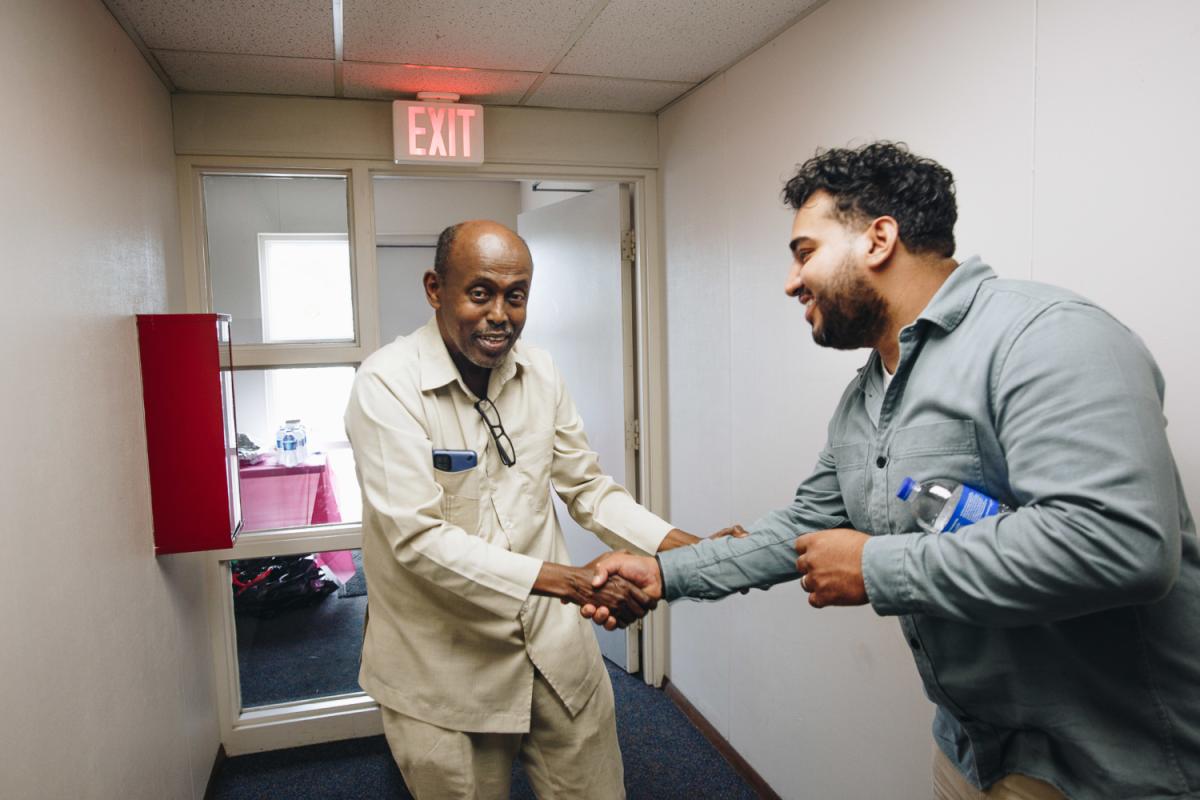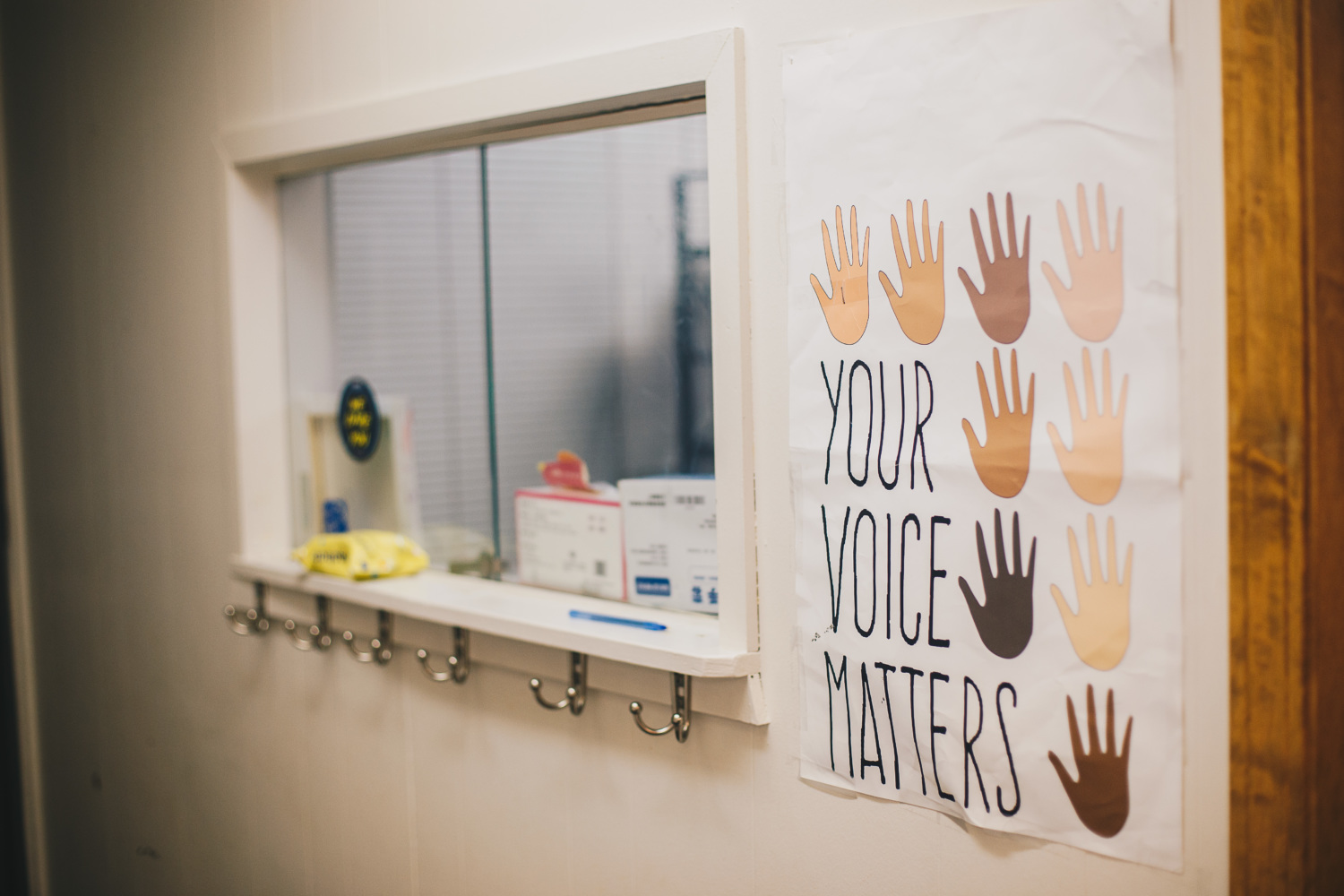Well-being Clinics Key to Building Trust, Advancing Vaccine Equity in African American and Refugee Communities
Public Health Institute | 14 Feb 2024
COVID-19 has disproportionately impacted the Black community—African Americans were more likely to live with other family members in the same home where social distancing was difficult, they were more likely to rely on public transportation, and more likely to suffer from underlying health conditions such as heart disease or diabetes. In Brown County, Wisconsin, African Americans and the Somali refugee community had some of the lowest vaccination rates for COVID-19.
So, in the Black community—health—it’s very scary. Historically, there’s so much erasure, so much trauma and so much pain that’s associated with it. And so, there are stats that obviously justify the reasons why folks are still very scared of a vaccine. There’s all these steps that you see are necessary when you see a community that has this kind of fear and this kind of truth.
Robin Scott: Executive Director, We All Rise African American Resource Center
The Brown County Reach Immunizations Systems Change for Equity (Brown County RISE) Collaborative Project recognized these gaps and ensured that equity was at the forefront. Brown County RISE provided the resources and funding to community-based organizations who have established relationships and trust with community members. The project also leveraged existing community resource centers and an established process that builds trust, fosters open communication and conversations about the COVID-19 vaccine, along with other health concerns within the Black, African American, Somali, and refugee communities.
Creating a culture of “well-being”
In an effort to address the health and well-being of community members, Wello worked with the community partners We All Rise African American Resource Center and Community Services Agency (COMSA) and the healthcare partner, Prevea, to begin offering COVID vaccines on-site at the community resource centers. Instead of just offering vaccine events, the partners brought “well-being clinics” to the heart of the community which provided the vaccines and information about COVID, meals and produce for individuals and families and a culturally-specific setting for the community. Local Somali and African American businesses were invited to sell their goods and products during the well-being clinics.
Local businesses as key partners in creating healthier communities
Partnerships with local businesses and vendors were valuable in ensuring that the well-being clinics were successful and could contribute to stronger community-clinical linkages, increased trust and healing in communities, an increase in COVID-19 vaccination rates in areas with the lowest vaccinations, and create a holistic, well-being environment.
It was important that the local vendors/businesses were members of the community where the well-being clinics were held. In partnership with COMSA and We All Rise, Wello identified what they would like to see at the well-being clinics based on the client’s needs and experiences. Where possible, the resource centers were able to provide linkages to local businesses within the community to help meet those needs.
Wello purchased products and services directly from the local businesses, such as Halal meals to serve during the the COMSA clinics, henna art that was provided by a Somali member of the community, basic hygiene products that were made specifically for people of color by people of color and provided by a local company – FAVORYT Brand, along with fresh food from local farms. The products and services were guided by the community. Wello also contracted with nurses who were representatives from the communities they were partnering with and a member of the community provided translation services. All of the local produce purchased went right back into local farms.

Together, the community partners were able to achieve the following:
- 8 well-being clinics were held in the community
- 128 people received their 1st, 2nd and booster shots of the COVID-19 vaccine
- 2,400 lbs. of local produce were purchased from local producers and provided to nearly 1,300 people
- Nearly $7,000 in purchases were from Somalian and Black-owned businesses
…Oftentimes, when we look to build capacity for community projects, there is a tendency to look outward, which means the dollars associated with that project go outside the community too (consultants, vendors, etc). It also means that we may not see the rich resources, talent, and skills that exist at a local level - with people who have a vested interest in the project/initative's success. But what if instead we worked to resource and build capacity locally? This doesn't work for all things, but as much as we can, we believe that part of building a proactive culture of health and a community where everyone has an equitable opportunity to health, it means that we work to build capacity locally. We believe that was a major positive outcome of this project.
Natalie Bomstad Executive Director, Wello

